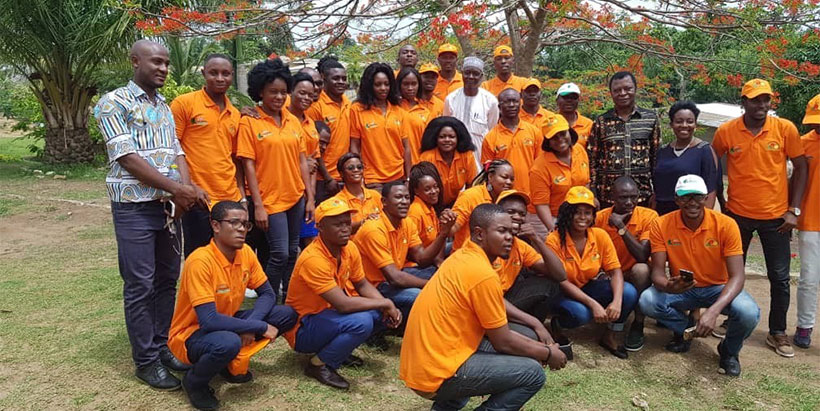
The business plan: The compass of the agripreneur
Starting in May 2020, expert trainers from the ENABLE Youth Cameroon (EYC) program had received and analyzed the business plans of aspiring ‘agripreneurs’ participating in the program. They are currently assisting the agripreneurs in finalizing their business plans, which could be financed by a yet-to-be-determined investor.
As part of the business analysis phase of the program, the trainers have trained aspiring agripreneurs on analyzing agricultural value chains. The agripreneurs learned value chain mapping to identify feasible, viable, profitable, and sustainable business opportunities. They were also encouraged to select innovative business ideas with an emphasis on value addition, compared to similar businesses existing in the same sector.
Since the beginning of the business plan phase, the experts have received 223 business plans from the 512 agripreneurs enrolled, which is about 50% of the expected number. Although this phase is a major determinant in the program, some Youth Agribusiness Incubation Centers (YABICs) received as few as three business plans.
The development of the business plan is a crucial step for any aspiring entrepreneur that can help to deepen and concretize the creation of a business. Also, the business plan is a document that shapes and summarizes this project and serves as an overview to present to potential investors. “A well-developed business plan cannot lack funding,” said Emmanuel Tchiengue, the value addition expert of EYC.
After the Ministry of Agriculture and Rural Development (MINADER) and IITA signed an agreement to start the EYC program in May 2018, a rigorous selection process produced 512 aspiring agripreneurs, of which 45% were female. This first set started their incubation in a sequenced process from February 2019, in 14 YABICs.
The incubation process of EYC was inspired by the IITA Youth Agripreneur model, which follows a practical learning pattern with individuals making discoveries and getting experiences with first-hand knowledge, rather than hearing or reading about the experiences of others. This learning model made it possible to provide practical experience to program participants while allowing them to quickly assimilate concepts through examples as close to real life as possible.
An essential part of this training was the strengthening of the entrepreneurial and managerial capacities of aspiring agripreneurs, the development of agribusinesses, and the financing of start-ups by aspiring agripreneurs by providing access to credit upon presentation of a bankable business plan. Throughout this process, the experts stay fully engaged in providing the best support to incubates.
“Many entrepreneurs fail, on average, almost four times before succeeding. What differentiates those who succeed from others is their perseverance,” said Eliane Mbida, the EYC Marketing Expert.
EYC recognizes the operational challenges and issues that the first set of 512 aspiring agripreneurs faced, including the extension of the incubation period to beyond the 12 months expected per batch. Despite this, the EYC coordination unit continues to encourage the aspiring agripreneurs noting that, “Resilience is a key to success.”



